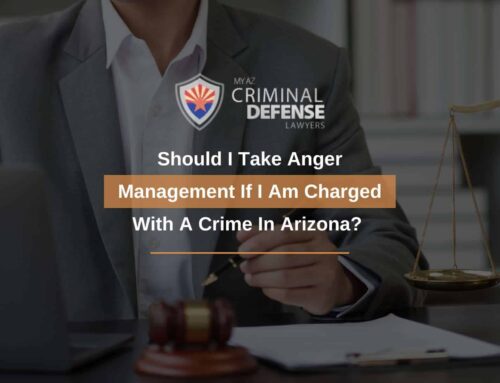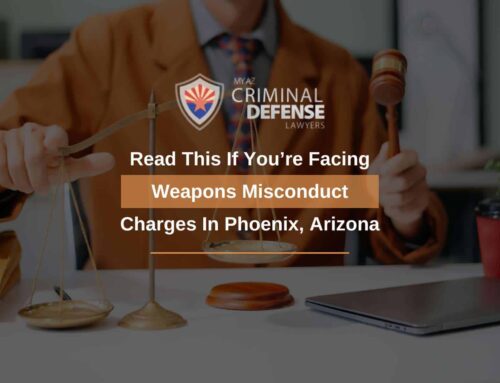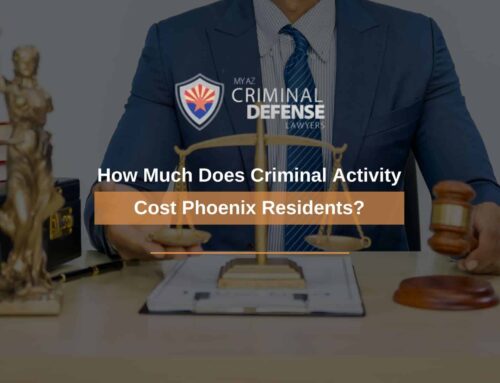Election-Related Crimes In Arizona
At the end of October in an election year in a swing state, it’s hard to avoid conversations and marketing surrounding politics. Last week, a volunteer came to my door and I asked him to leave once I realized it was going to be one of those annoying post-COVID conversations where the other person is not actually listening to or processing what you are saying. A little while after I closed the door, he began singing at my doorstep. I yelled at him to leave and he called me a weirdo. Obviously, I sent angry emails to half of the political organizations in Arizona until I tracked down the right one and got him fired. I don’t feel great about it, but I won’t stand for someone coming to my home and calling me a weirdo, even if it is accurate. But that got me thinking- if I weren’t such a Karen, could an election-related crime have occurred?
Arizona’s political climate is unquestionably tense as we progress through yet another unprecedented election. Some people believe so strongly in their political beliefs that they will resort to crimes to achieve their goals. Many criminal activities surrounding elections are federal offenses, but Arizona also has specific laws related to political interference. If you’ve been an overly-zealous political citizen, you could face criminal penalties in Arizona. Read on to learn more about them, and for a free consultation with an experienced Phoenix-area criminal defender, call 480-833-8000.

Arizona Revised Statutes Section 16-1019: Political Signs & Printed Materials
A.R.S. § 16-1019 is Arizona’s law regarding political signs and printed materials. It includes limitations for campaign marketing as well as criminal penalties for tampering with them. Political signs are protected from removal, alteration, and tampering of any kind if five requirements are met:
- The sign is in a public right-of-way owned or controlled by that jurisdiction;
- The sign supports or opposes a candidate for public office or a ballot measure, question, or issue;
- The sign is not placed in a location that is hazardous to public safety or that interferes with the ADA;
- The sign is not larger than 16 sq ft in a residential zone or 32 sq ft in any other area; and
- The sign contains the name and telephone number or website address of the candidate or campaign committee contact person.
The candidate should be notified within 24 hours if a city, town, or county needs to move a sign due to an emergency. Signs, pamphlets, and other printed materials related to an election are protected starting 71 days before the election and up to 15 days after the election. Removing, altering, defacing, etc., such materials is a class 2 misdemeanor in Arizona. Per A.R.S. § 13-707, a class 2 misdemeanor is punishable by up to 4 months in jail.
Arizona Revised Statutes Section 16-1016: Illegal Voting
There are several ways to commit illegal voting in Arizona, which is a class 5 felony. Some of them include:
- Knowingly voting more than once at any election;
- Knowingly changing or destroying a ballot after it has been deposited in a ballot box;
- Knowingly destroying a polling list, ballot, or ballot box with the intent to interrupt or invalidate the election;
- Knowingly voting for two federal elections on the same day in two different states;
- Knowingly voting in more than one election when the person is not a resident of any of those jurisdictions;
- Knowingly adding or mixing fraudulent ballots with legitimate ballots to interfere with the election or to exhibit as evidence at trial if the election is contested;
- Knowingly handing an election official two or more ballots folded together;
While tampering with a political sign or printed material is a misdemeanor, voter fraud is a felony, which is a more severe type of criminal conviction. Arizona’s sentencing guidelines for first-time felony offenders are set forth by A.R.S. § 13-702. The presumptive sentence for a class 5 felony is 1.5 years, with a minimum of .75 years and a maximum of 2 years. If the defendant can prove mitigating factors were present, the sentence can be reduced as low as .5 years. If the prosecution can show the existence of aggravating factors, the sentence can be increased to 2.5 years. All of these guidelines can also be increased if the defendant has a prior criminal record. A felony conviction is viewed as more serious and will make it more likely that the person is later denied on applications for housing, employment, and more.
With illegal voting charges, you may have noticed that all of the actions require that the defendant acted knowingly. This is one of the defenses that a defendant could raise when fighting illegal voting charges in Arizona. If the defendant lacked the requisite level of intent, they should not be convicted of the alleged crime. A defendant should review their situation with a criminal defense attorney to review all possible defenses that could apply to their case. For your free consultation with a leading choice in criminal defense firms in Arizona, call 480-833-8000.
Arizona Revised Statutes Section 16-1018: Additional Voting Crimes
A.R.S. § 16-1018 describes 9 other voting scenarios that are considered criminal offenses under Arizona law. Committing any of the offenses below is a class 2 misdemeanor and punishable by up to 4 months behind bars.
- Knowingly electioneering on election day within a polling place or within 75 feet of the main entrance of a polling place;
- Intentionally removing a voting machine or voting record from a polling place or early voting location;
- Knowingly removing an official ballot from a polling place before closing the polls;
- Showing another person’s completed ballot to reveal its contents except for providing lawful assistance to the voter;
- Knowingly soliciting a voter to show their ballot or to receive a ballot prepared for voting;
- Knowingly receiving a ballot from someone other than an election official;
- Knowingly delivering an official ballot to someone other than an election official;
- Except for when completing a ballot by fax, knowingly placing a mark on another person’s ballot; and
- As a voter, after having received a ballot, knowingly failing to return the ballot before leaving the polling place.
As one can see, many of these charges are designed to penalize polling place workers from interfering with the election, but several can apply to any person interfering with a ballot on election day. The defendant could face other criminal charges for their conduct surrounding the election and face stacked criminal penalties, resulting in substantial fines and incarceration. If you have been arrested for any violation of A.R.S. § 16-1018, you should discuss your situation with a criminal defense attorney as soon as possible. Call 480-833-8000 for a free consultation with one of our experienced Arizona defenders today.
Is Your Liberty At Stake This Election Season? Schedule A Free Consultation With A Skilled Arizona Criminal Defense Attorney.
While a canvasser calling me a weirdo probably wasn’t a crime, it’s important to understand the limits and restrictions set forth by Arizona law while campaigning for one’s chosen candidate. Tampering with campaign materials, voting fraudulently, and generally causing issues on election day can result in misdemeanor or felony charges against the accused. It’s also possible to be mistakenly charged with these types of crimes. If you find yourself in this type of situation, you should be talking to a defense attorney about options as soon as you can. For your free consultation with an experienced Arizona criminal defender, call 480-833-8000. Don’t hesitate to contact us today!

My AZ Criminal Defense Lawyer
Mesa Location:
1731 West Baseline Rd., Suite #100
Mesa, AZ 85202
Office: (480) 448-9800
Glendale Location:
20325 N 51st Avenue Suite #134, Building 5
Glendale, AZ 85308
Office: (602) 509-0955
Tucson Location:
2 East Congress St., Suite #900-6A
Tucson, AZ 85701
Office: (520) 441-1450
Avondale Location:
12725 W. Indian School Rd., Ste E, #101
Avondale, AZ 85392
Office: (623) 499-4222







